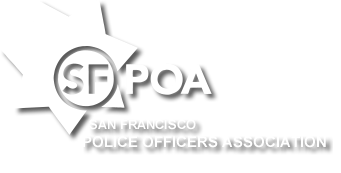One of the more nettlesome questions in jurisprudence concerns the extent to which legal rights can be waived. And even if this question is answered in the affirmative with regard to a particular law, a second question instantly arises: waived by whom? While it has long been known that a police union does not have the power to waive individual officers’ rights under California’s Public Safety Officers’ Procedural Bill of Rights Act (POBRA) – say, for example, in exchange for a pay raise or benefit improvement – the law has been unclear as to whether an individual officer could ever elect to waive his/her own POBRA rights and, if so, under what circumstances.
While it might seem a matter of common sense that an individual possesses the power to forego his/her own legal protections, there are any number of laws where concerns over the potential imbalance in bargaining power between the parties result in a prohibition against the presumably weaker party’s having the ability to waive rights afforded him/her by the law enacted for his/her protection. An example of this is the inability of a worker covered by the Fair Labor Standards Act to volunteer services for his/her employer that are substantially similar to work s/he regularly performs as an employee. The justification for this seemingly patronizing prohibition arises from the very real fear that an employee can never really be thought of as voluntarily waiving his/her right to pay under the FLSA and thereby “volunteer” for unpaid work given the employer’s inherently coercive power over the employee (e.g., one can imagine an employer’s subtly signaling an employee that if she doesn’t “volunteer” for a certain task, her future prospects for promotional opportunities will be slimmer than would have otherwise been the case had she in fact “volunteered”).
Enter POBRA: does a police officer ever really voluntarily “waive” his/her POBRA rights, given the imbalance in bargaining power between an officer facing a potential loss of employment and a public agency, wielding its inherent authority to seek termination? California’s Second Appellate District Court recently answered that question in the affirmative, ruling that an officer’s partial waiver of POBRA rights was valid when entered into during the course of disciplinary proceedings and in exchange for reduced discipline and continued employment. (Lanigan v. City of Los Angeles (Oct. 4, 2011) 11 C.D.O.S. 12637).
Los Angeles police officer Robert Lanigan became the subject of disciplinary proceedings due to alleged misconduct when he was stopped for a traffic violation while off-duty. The chief of police referred Lanigan to L.A.’s Board of Rights (BOR) and proposed termination. Before the BOR proceedings commenced, Lanigan’s attorney negotiated a settlement agreement with the City, in which the proposed penalty was reduced to a 22-day suspension in exchange for Lanigan’s agreeing to resign immediately from the L.A.P.D. if he received any further complaints, as well as to waive certain POBRA rights in the event of a future complaint.
Slightly more than a year later, Lanigan received an additional complaint for allegedly providing false information to and failing to cooperate with L.A. sheriff’s deputies who were summoned to a disturbance at a hospital. The complaint stated that Lanigan had entered the hospital intoxicated, unnecessarily identified himself as an officer, “terrified” other patients, and exhibited discourteous conduct. The chief of police sustained the complaint, processed Lanigan’s resignation pursuant to the settlement agreement, and removed Lanigan from employment.
Lanigan sued, claiming that the settlement agreement he had signed and his waiver of POBRA rights were legally unenforceable as contrary to law and public policy, as well as both procedurally and substantively unconscionable. In essence Lanigan’s arguments paralleled the idea (which I outlined above) that certain legal rights simply cannot be waived – even by the individual possessing them – because of the disparity in bargaining power between parties. The trial court agreed with Lanigan and ruled the settlement agreement was unenforceable and void.
The Second Appellate District, however, disagreed and reversed, holding that the settlement agreement was enforceable. Quoting prior case law on the subject, the Appellate Court did acknowledge that certain waivers of POBRA could be deemed to be unenforceable: “If law enforcement agencies could routinely require applicants to waive their respective rights under POBRA as a condition of employment, these employers could render POBRA nugatory vis-à-vis all new peace officers, essentially forcing these officers to opt out of the Act before they even begin work.” (Lanigan, quoting County of Riverside v. Superior Court (2002) 27 Cal.4th 793 at 805).
But the Second Appellate District took pains to distinguish the facts of Lanigan’s case from a situation where an imbalance of bargaining power would render void an officer’s waiver of POBRA rights:
“Oppression occurs where there is an inequality in bargaining power which results in a lack of real negotiation and an absence of meaningful choice. . . . As a result, procedural unconscionability generally takes the form of a contract of adhesion which is . . . imposed and drafted by a party of superior bargaining strength [and] relegates to the subscribing party only the opportunity to adhere to the contract or reject it. [citation omitted] Here, the Agreement was not . . . adhesive, oppressive, nor a surprise to Lanigan. Lanigan’s attorney had the opportunity to negotiate the contract and its terms.”
In reaching the conclusion that Lanigan’s wavier of POBRA was truly voluntary in nature, the Appellate Court relied upon certain evidence in the record:
“Settlement agreements between an officer and the LAPD are not simply presented to officers for signature in ‘take it or leave it’ fashion and are often negotiated. Indeed, . . . the LAPD will sometimes agree to [a] change. Further Lanigan’s bargaining strength was equal to the City’s. Not only was Lanigan represented by an attorney of his choosing, Lanigan had an alternative means of maintaining his job – an appearance before a BOR.”
(emphasis in original).
Thus, the upshot of this decision is that while pre-employment, blanket waivers of POBRA rights are legally invalid, an individual officer’s negotiated waiver of POBRA rights in the context of a disciplinary matter is enforceable. Such result will stand unless the California Supreme Court weighs in on the case and rules differently than the Second Appellate District.
“Roll the Union On . . .”

